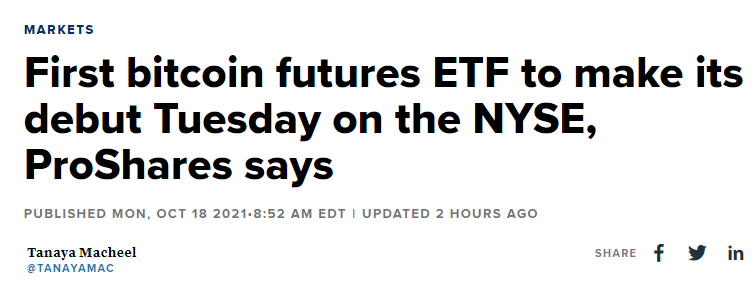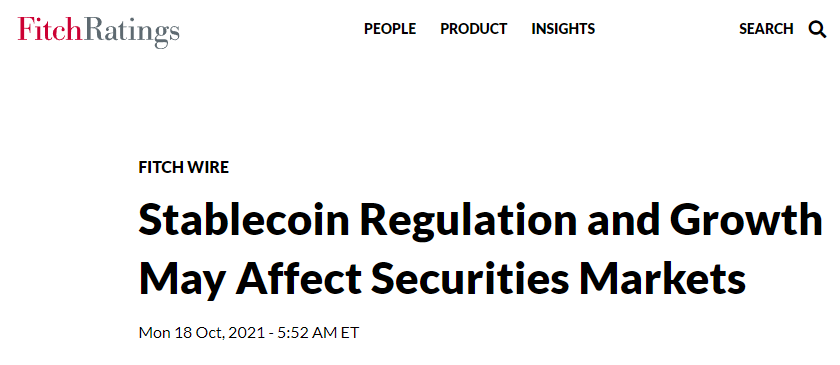At last, the U.S. is prepared to launch its first bitcoin-related exchange-traded fund (ETF), barring any major surprises from U.S. Securities and Exchange Commission Chair Gary Gensler. …

The reason this is important is because of what has been happening in the gold market these last few years, where there is a lot more paper gold than actual gold in the system, and we believe that this is a large reason for the precious metal’s underperformance at a time of relative uncertainty and higher inflation expectations.
It will be interesting to see if the SEC does approve any of the pending ETF proposals that are actually backed by bitcoin itself.
However, it would be understandable if they do not, providing the explanation that institutional solutions to custody bitcoin are still relatively new and untested.
Bakkt is back!
This development has generated a bit less fanfare than the ETF, but it’s also cool to note that the bitcoin custody solution that was built specifically with Wall Street in mind is going public today via a special purpose acquisition company (SPAC).

Honestly, the reporting around this is kind of sparse, as are the volumes that Bakkt bitcoin futures contracts, which unlike the ProShares ETF are backed by physical bitcoin, have seen since launching. If it weren’t for the SPAC deal, it seems likely they would never have gone public.
Still, having a publicly traded entity that custodies bitcoin could help with some of the concerns the SEC likely has about a spot-backed ETF.
However, even if that doesn’t do the trick, the recent announcement that US Bank will custody bitcoin should eventually sway the SEC. As they say, bitcoin is inevitable.
Battle shift
That’s not to say that the entire crypto market is impenetrable though. All of the above and more seems to be evidence that the war on cryptocurrencies is taking a critical turn in direction.
Whereas in the past, even just holding bitcoin or facilitating transactions was seen as taboo by U.S. institutions and regulators, we can now see that they’re much more comfortable with bitcoin itself. Instead, regulators are now setting their sights on the DeFi market.
It’s very interesting to see how now, on this of all days, Fitch Ratings Inc. has issued a stark warning regarding stablecoins.

Of course, Fitch is simply echoing concerns recently stated by Treasury Secretary Janet Yellen and Federal Reserve Chair Jerome Powell, or J-Pow, who both see stablecoins as a potential pitfall for global financial markets, if left unchecked.
They have every reason to be fearful as well. With the DeFi lending market rapidly gaining steam, investors are often able to reap yields by holding stablecoins that are far greater than they would through the traditional bond market, and if DeFi grows much further, it could seriously undermine the Fed’s ability to manipulate markets through interest rate suppression.
It is our opinion that DeFi will help heal markets rather than harm them, but it may take authorities some time to see this. For now, we’re taking a huge victory lap after winning the Bitcoin battle, but investors should not let their guard down completely when it comes to crypto.
U.S. lawmakers have yet to define any rules of the road that pertain to digital assets, and until they do, the nation will remain left behind.


